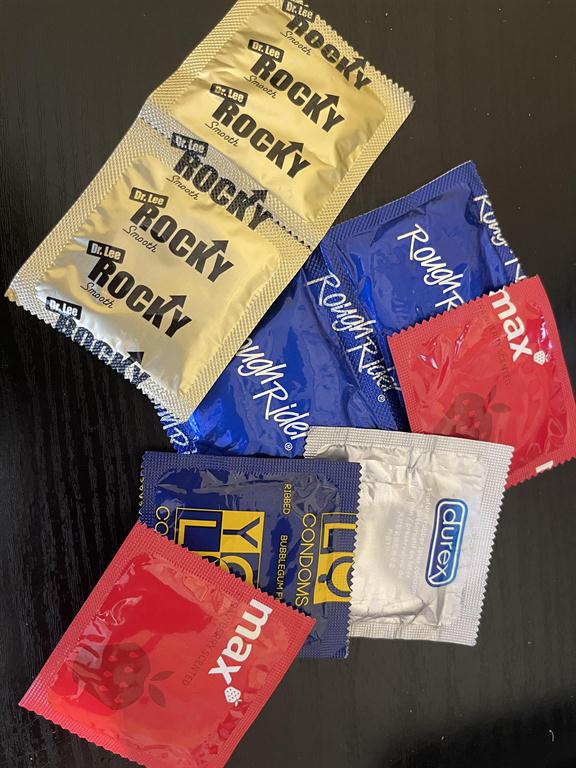Namibia runs low on condoms
TUYEIMO HAIDULA
OSHAKATI
There are no condoms at most bars and sheebens in northern Namibia as well as some clinics and health centres in the Khomas Region, which have been the hot spots for contraceptive distribution.
This shortage has been about by the Covid-19 pandemic. Bar owners have expressed disappointment as their customers usually grab condoms from establishments on their way home.
Namibian Sun also understands that some health centres in Oshana and Khomas have once again run out of injectable contraceptives. Windhoek Central Hospital, Onandjokwe State Hospital and Ondangwa Adolescents and Youth Health+ Centre have run out of the norethisterone (Nur-Isterate) injection.
Just last year, a study compiled by the Reproductive Health Supplies Coalition and Global Financing Facility envisaged that up to 27 900 unintended pregnancies may occur in Namibia because of a shortage of contraceptives.
While health executive director Ben Nangombe had at the time assured the country that the disruptions caused by the pandemic, would be resolved by June and most contraceptives and other pharmaceuticals would be delivered at the ministry's Central Medical Store, the shortage persists.
Nangombe was not available for comment yesterday.
Double whammy
Linda Baumann, human rights and gender activists, said while there has been no formal communication from the health ministry, they too have observed through their community outreach programmes that the condom distribution at bars and clinics has diminished.
She further lamented that condoms have become a capitalist money-making scheme, and challenged the health ministry to resolve the issue immediately as the poor distribution will not only impact the country’s efforts to stop the spread of HIV/AIDS, but will also increase teenage pregnancy.
“This means the effect has doubled up in terms of weak access as it was already slowing down before the pandemic. People don’t need to ask anyone or buy condoms when they enter a bar or clinic. They should just pick up when they need to use it, but now those condoms are nowhere in sight,” she said.
Baumann said condoms and contraceptives should be part of the minimum package for sexual reproductive health offered to Namibians, adding that lubricants should also be added for key populations.
“Teenage pregnancy is high. Children are being taught at school how to protect themselves from pregnancy, but the commodity to use is not available,” she said.
Teen pregnancy problem
Community outreach coordinator for the Namibia Planned Parenthood Association, Risto Mushongo said he is concerned by the alternative methods being offered to young women who do not wish to fall pregnant.
Namibia faces a massive teen pregnancy problem. Earlier this year, the education ministry announced that 3 323 girls fell pregnant between March and July 2020 during the Covid-19 lockdown.
Mushongo said this number can easily increase as these young girls opt to not take any contraceptive if what they normally use is unavailable.
Currently, most health centres and hospitals have the implant, known as the Jadelle, and the medroxyprogesterone (Depo Provera) injection.
[email protected]
OSHAKATI
There are no condoms at most bars and sheebens in northern Namibia as well as some clinics and health centres in the Khomas Region, which have been the hot spots for contraceptive distribution.
This shortage has been about by the Covid-19 pandemic. Bar owners have expressed disappointment as their customers usually grab condoms from establishments on their way home.
Namibian Sun also understands that some health centres in Oshana and Khomas have once again run out of injectable contraceptives. Windhoek Central Hospital, Onandjokwe State Hospital and Ondangwa Adolescents and Youth Health+ Centre have run out of the norethisterone (Nur-Isterate) injection.
Just last year, a study compiled by the Reproductive Health Supplies Coalition and Global Financing Facility envisaged that up to 27 900 unintended pregnancies may occur in Namibia because of a shortage of contraceptives.
While health executive director Ben Nangombe had at the time assured the country that the disruptions caused by the pandemic, would be resolved by June and most contraceptives and other pharmaceuticals would be delivered at the ministry's Central Medical Store, the shortage persists.
Nangombe was not available for comment yesterday.
Double whammy
Linda Baumann, human rights and gender activists, said while there has been no formal communication from the health ministry, they too have observed through their community outreach programmes that the condom distribution at bars and clinics has diminished.
She further lamented that condoms have become a capitalist money-making scheme, and challenged the health ministry to resolve the issue immediately as the poor distribution will not only impact the country’s efforts to stop the spread of HIV/AIDS, but will also increase teenage pregnancy.
“This means the effect has doubled up in terms of weak access as it was already slowing down before the pandemic. People don’t need to ask anyone or buy condoms when they enter a bar or clinic. They should just pick up when they need to use it, but now those condoms are nowhere in sight,” she said.
Baumann said condoms and contraceptives should be part of the minimum package for sexual reproductive health offered to Namibians, adding that lubricants should also be added for key populations.
“Teenage pregnancy is high. Children are being taught at school how to protect themselves from pregnancy, but the commodity to use is not available,” she said.
Teen pregnancy problem
Community outreach coordinator for the Namibia Planned Parenthood Association, Risto Mushongo said he is concerned by the alternative methods being offered to young women who do not wish to fall pregnant.
Namibia faces a massive teen pregnancy problem. Earlier this year, the education ministry announced that 3 323 girls fell pregnant between March and July 2020 during the Covid-19 lockdown.
Mushongo said this number can easily increase as these young girls opt to not take any contraceptive if what they normally use is unavailable.
Currently, most health centres and hospitals have the implant, known as the Jadelle, and the medroxyprogesterone (Depo Provera) injection.
[email protected]





Comments
Namibian Sun
No comments have been left on this article